MBO/MRF undertakes new research & outreach activities
Starting in 2022, McGill University was awarded $390,000 from Environment and Climate Change Canada’s Environmental Damages Fund (EDF) to undertake a three-year project entitled “Restoration, research and education to protect migrating birds in l’Ouest-de-l’Ile” in partnership with the Migration Research Foundation, Inc. (the charitable organization behind the McGill Bird Observatory; MBO) and with the support of Bird Protection Quebec (BPQ).
The overarching goal of this project is to protect migratory songbirds in the West Island of Montreal.
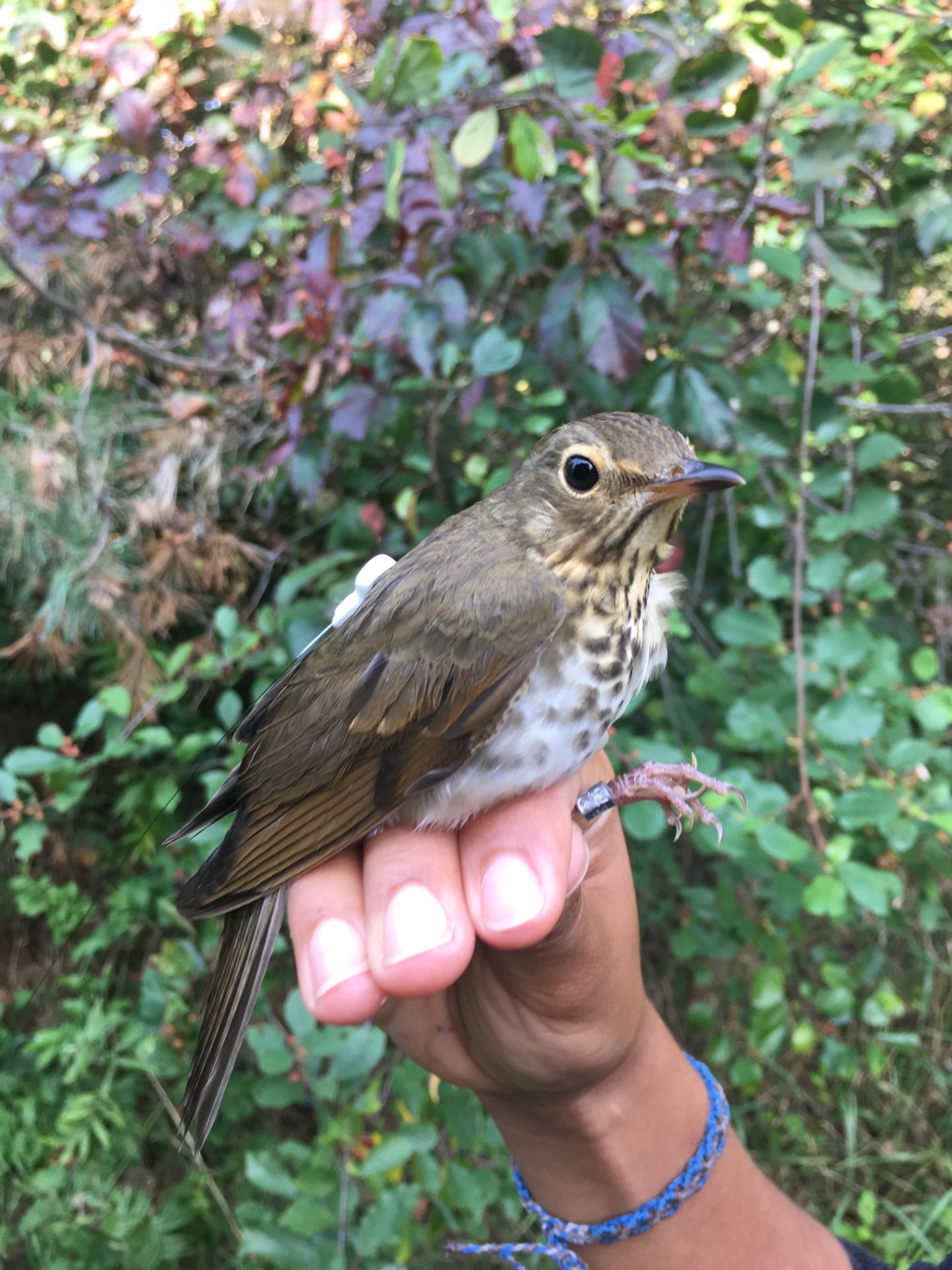
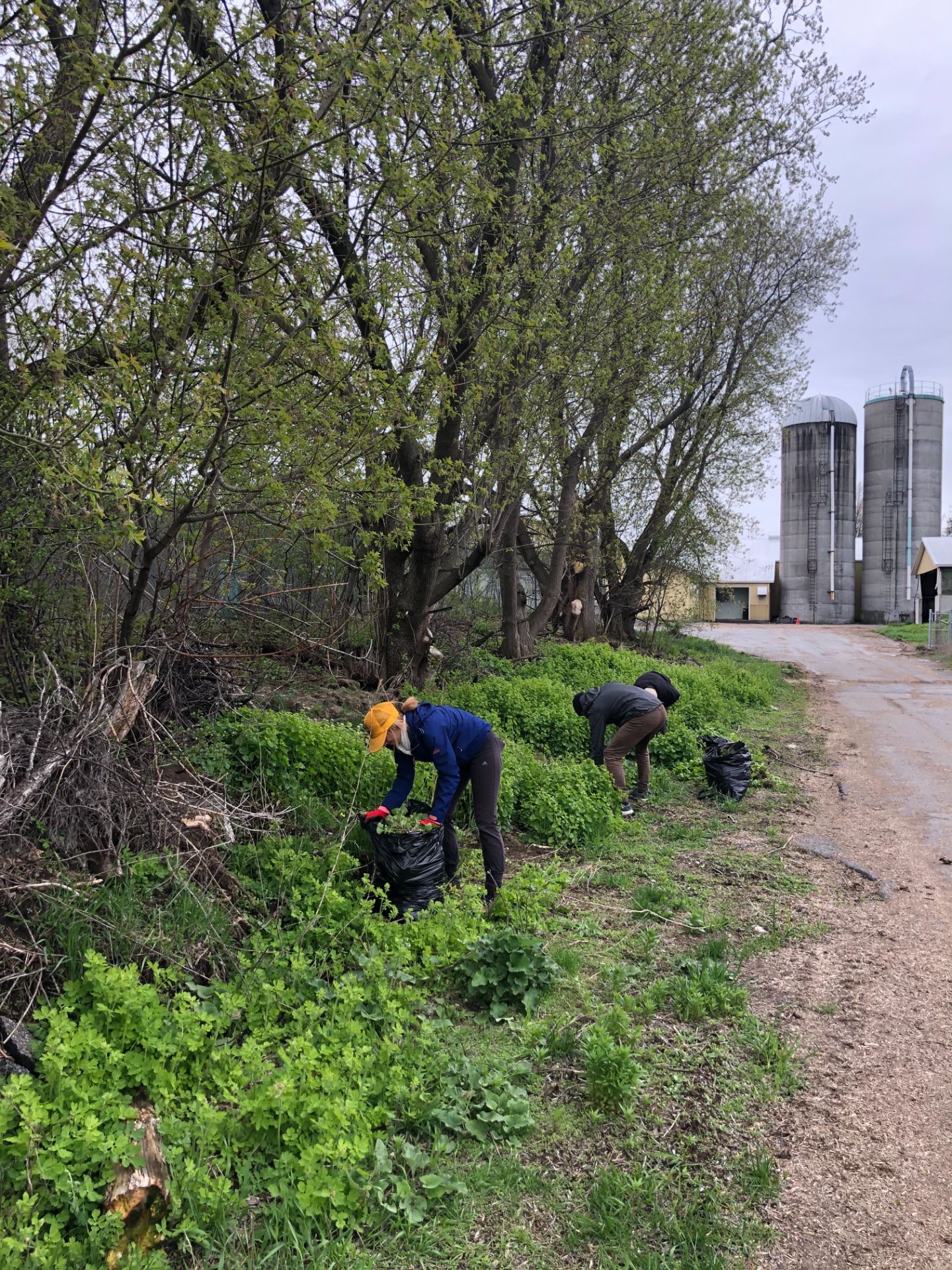
The funding will be used to achieve three objectives:
(1) restore native habitat for songbirds in the west island by removing invasive species and planting over 1000 native trees and shrubs;
(2) research the habitat use and mortality of migratory songbirds in the west island across space and time; and
(3) engage in outreach to the local Montreal community , particularly the youths, on the importance of urban greenspaces for migratory songbirds and how to improve local habitat for bird diversity.
EDF funds supported the coordination and removal of close to 500 kg of invasive garlic mustard on the Macdonald Campus and the McGill Bird Observatory with the help of McGill students, as well as MBO and Bird Protection Quebec (BPQ) volunteers. Garlic mustard crowds out native plants, impacting birds and other wildlife that depend on the presence of native vegetation. The current and future control of this invasive species and replacement with several native species in the coming years will improve bird and other wildlife habitat in the area.
Despite the unforeseen and continuing challenges of a global pandemic, in the project’s first year (2022) funding provided by the EDF allowed the MBO to become a key partner on the coordination and logistics of the research aspect of this project.
Funds were used to purchase three new automated telemetry stations (Motus) and radio telemetry nanotags to understand the stopover behavior and habitat preferences of two species of migratory songbirds that are known to use the West Island as an important stopover during their moulting period and fall migration.
Since fall 2022, McGill MSc student Vanessa Poirier , has been hard at work trying to answer these important questions, and trying to understand how moult migrating Swainson’s Thrush and Tennessee Warblers are using the different habitats in the Grand Parc de l’Ouest during this crucial time period in their annual cycle.
A total of five Motus stations around different habitats within the Grand Parc de l’Ouest were used to track over 50 Swainson’s Thrushes and Tennessee Warblers from August – November 2022.
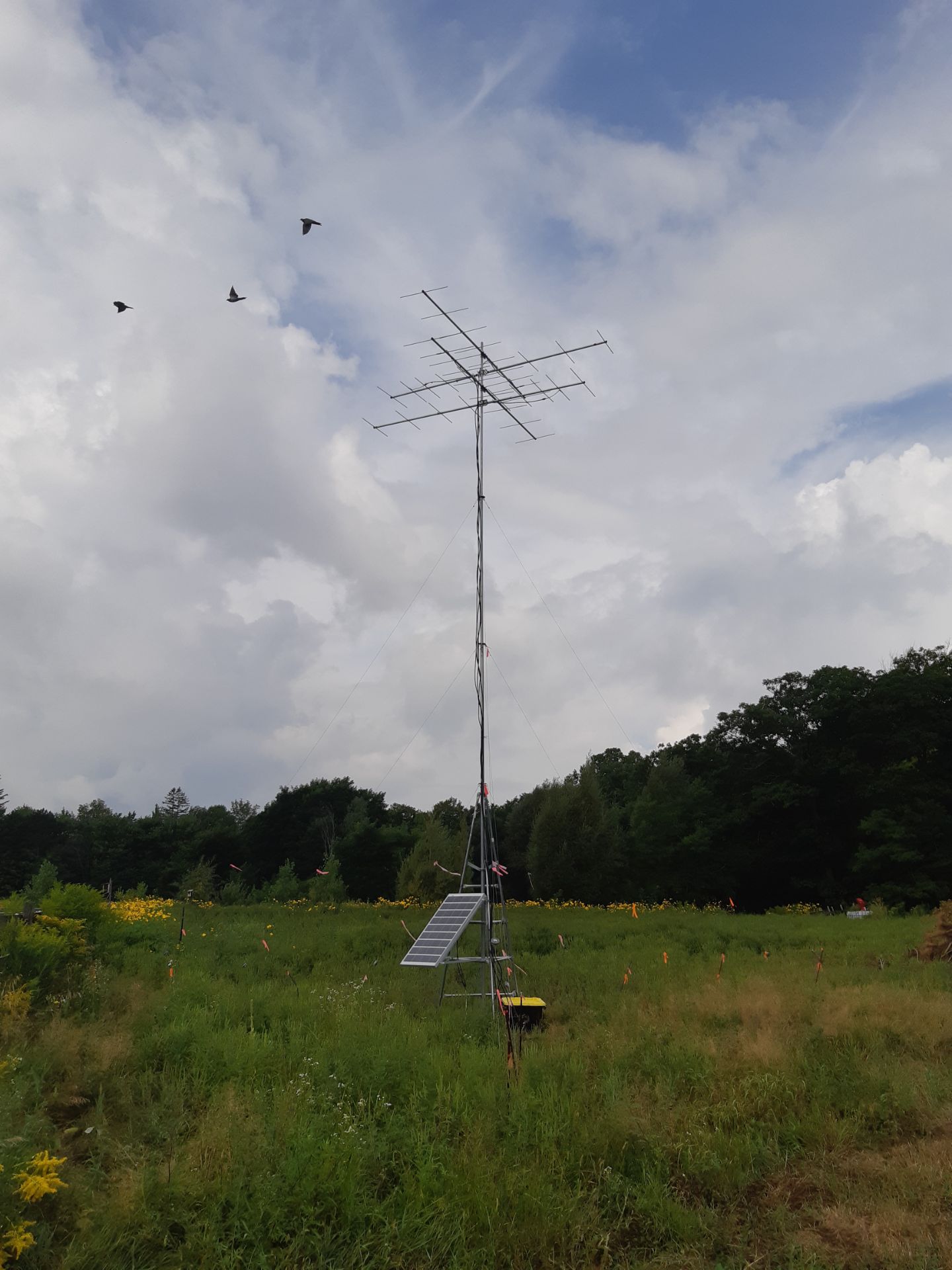
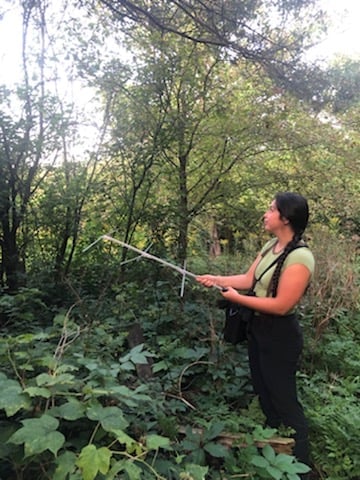
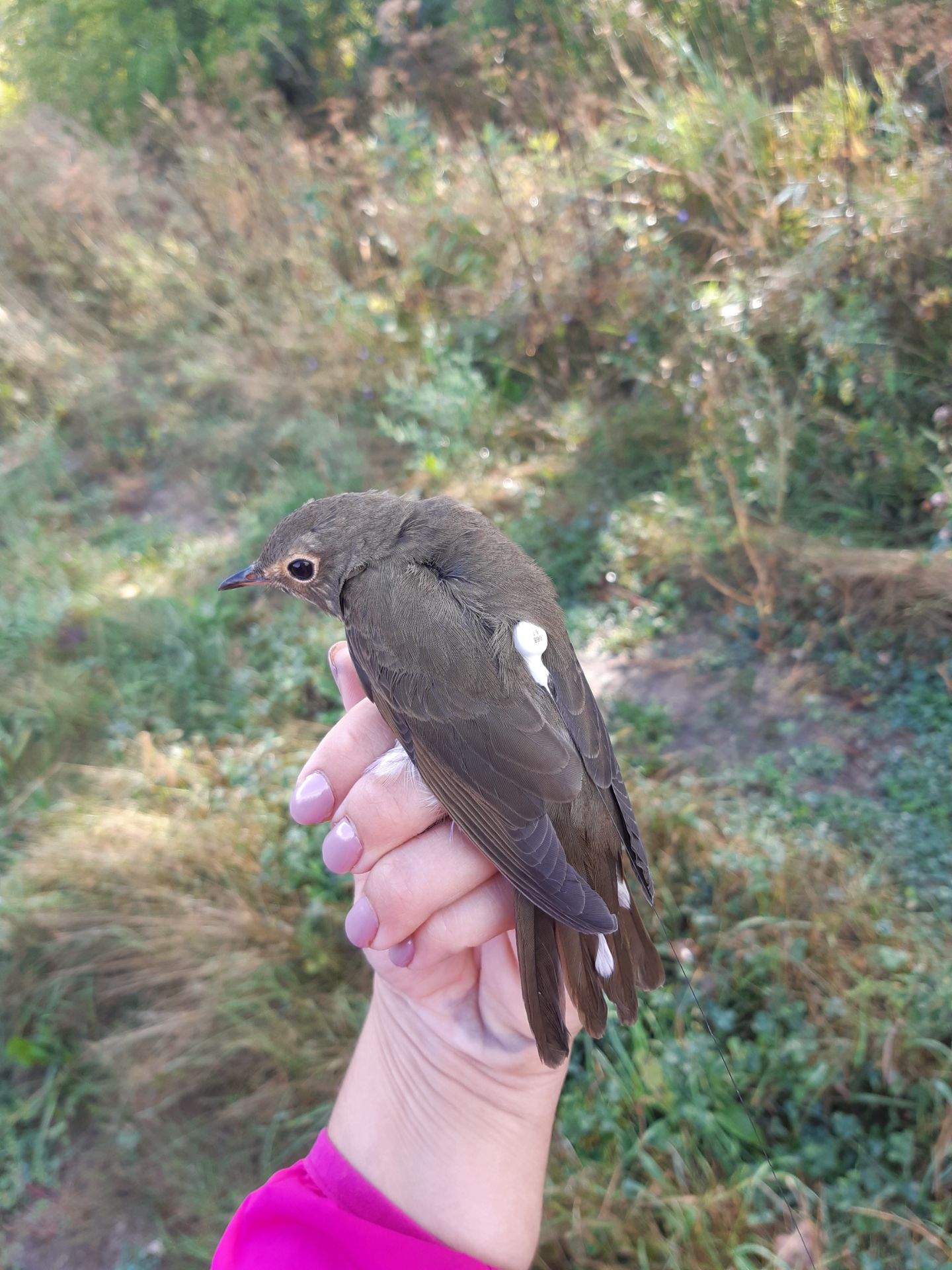
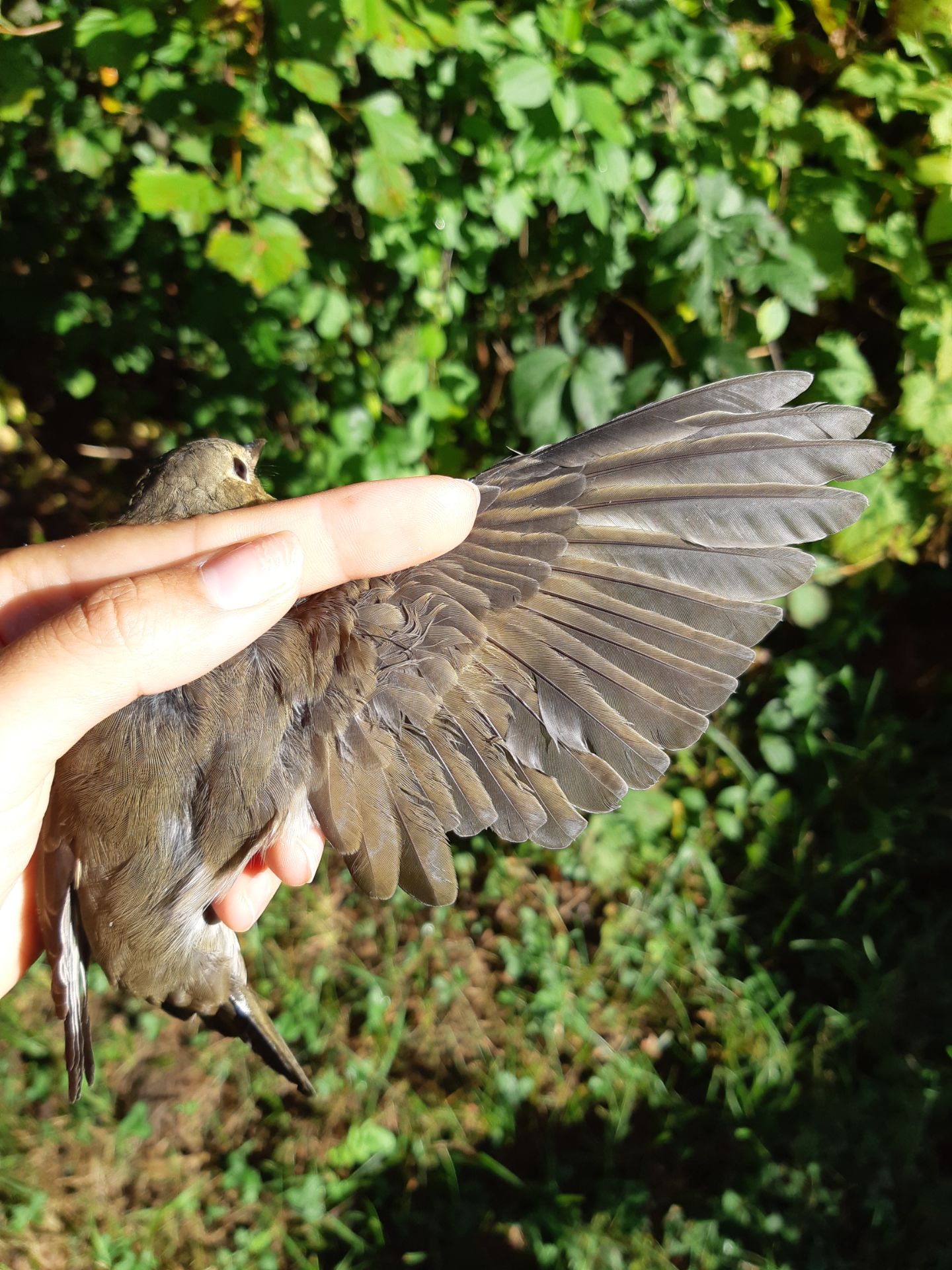
While the pandemic has, and will continue to, impact MBO’s ability to undertake in-person outreach activities, EDF funds in 2022 were used to begin the development of an educational module for youth. Specifically, through the hiring of a talented local videographer (Ryan Young), a series of informative and visually appealing videos were created to be housed on the MBO’s YouTube channel, where children and their parents will learn about the ecology and conservation of migratory birds and the importance of native plant species and greenspaces to birds. While in its infancy, this work will allow us to reach a wider audience all across Montreal and the province, and encourage public engagement in further habitat restoration.
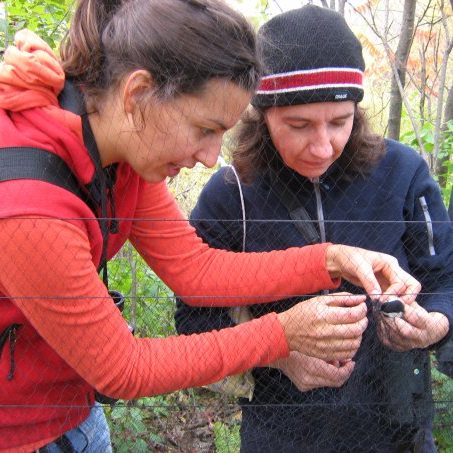
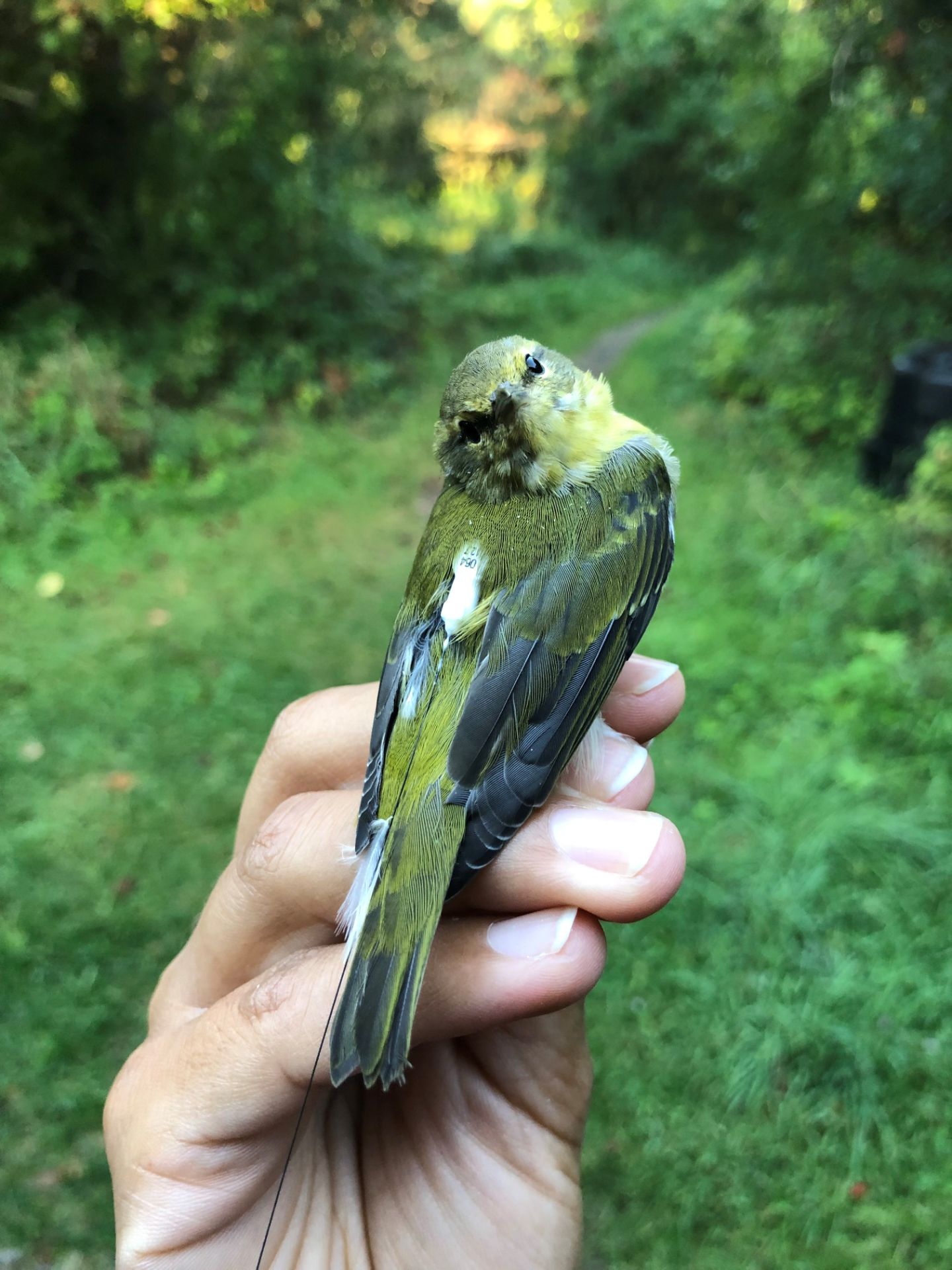
In the project’s second year (2023), we plan to undertake the planting of 450 native shrubs and trees around the West Island and to continue to monitor the movements of migratory songbirds throughout their fall stopover to better understand local habitat use and connectivity, and to help us identify where planting of native trees is likely to provide the greatest ecological benefit for migratory songbirds.
About the grant
The Environmental Damages Fund (EDF) is a specified purpose account administered by Environment and Climate Change Canada (ECCC) to direct funds received from fines, court orders and voluntary payments to priority projects that will benefit Canada’s natural environment. The purpose of any contribution to the EDF is to restore the environment and conserve wildlife and habitats in a scientifically sound, cost-effective, and technically feasible way.
